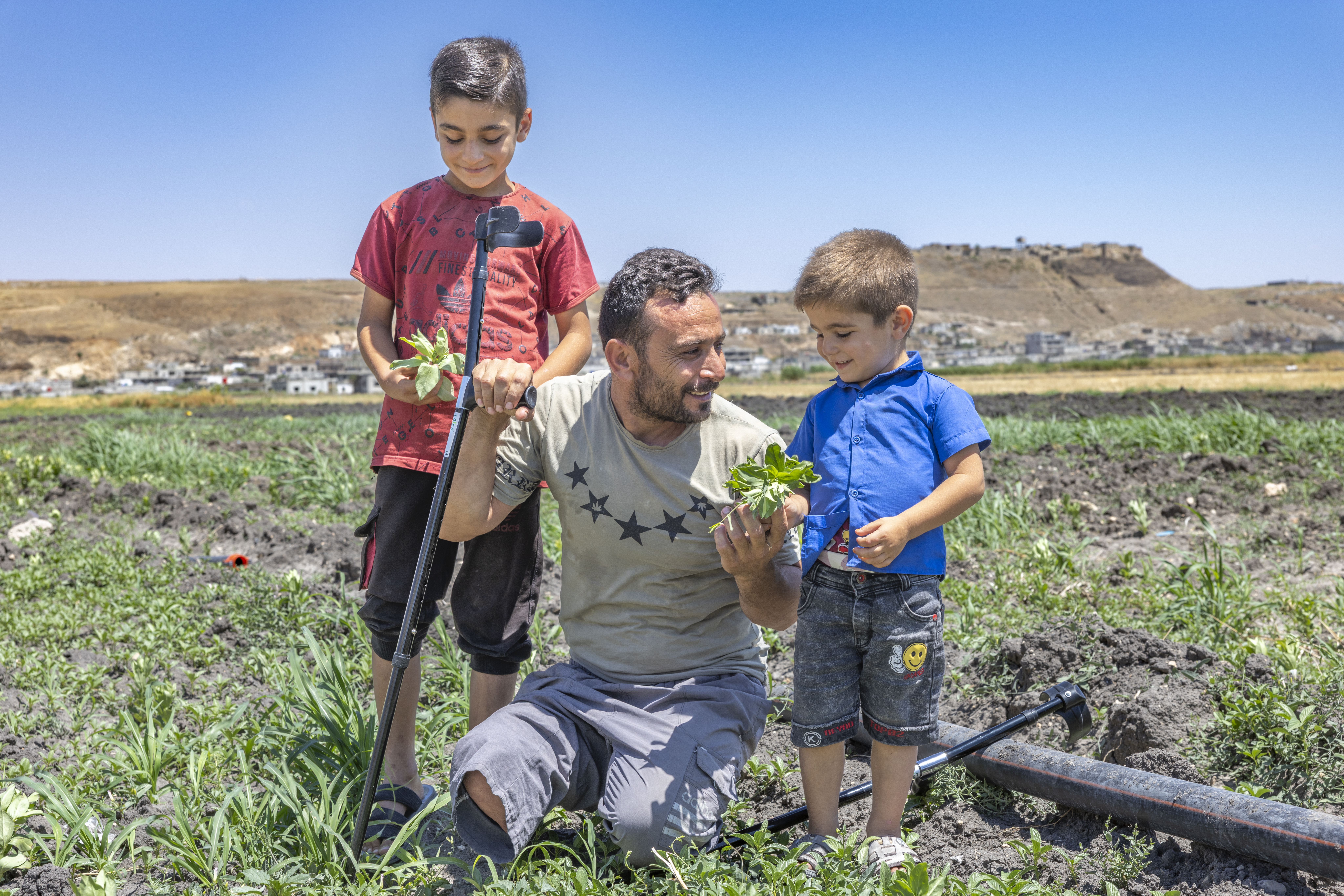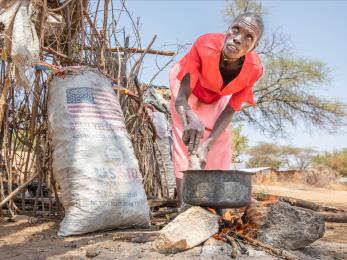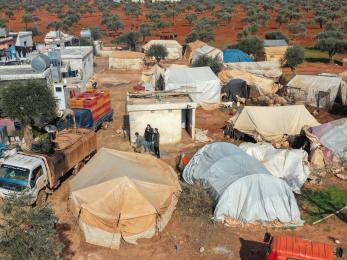A generation transformed by conflict in Syria
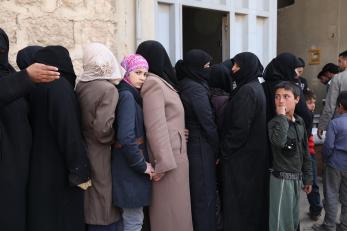
Syrian youth have spent more than half of their lives amidst conflict, violence and shattered dreams. All adolescents want to be heard, listened to, and taken seriously, but it’s even more critical for these young people. They’ve been forced to grow up too fast, and many have lived entire lifetimes before even turning 19 years old.
Mercy Corps talked with Syrian adolescents, ages 14 to 19 years old, to gain a deeper understanding of the conflict from their perspective. We think listening to the complexities of their experiences provides some of the best insight into the humanitarian interventions they actually need.
The quotes in this article are from our report “Adolescence Lost.” Read our full report here.
Join us in hearing some of these young people’s stories.
Growing up fast in conflict
Syrian youth’s experiences of trauma and loss affects every aspect of their lives, from the roles they take on in their families to the dreams they’ve given up.
“Our lives became normal and less than normal, we don’t find what we used to find before, like school and playing,” says one girl.
Some two-thirds of children in Syria have lost a loved one, had their house damaged, or suffered conflict-related injuries. “My brother and I are breadwinners and this is a recent change because my father passed away,” says one boy.
Youth are forced to face adult responsibilities out of necessity.
Though they also describe great pride at stepping up to support their families and contributing to their communities, they felt an overwhelming burden of having to grow up so fast and figure out how to make a living.
“Most of my time is spent at work,” says one boy. “My young age makes me feel that I am carrying burdens larger than my capacity. I feel proud for supporting my family but it is very daunting for me, for my income is small and I wish to be studying.”
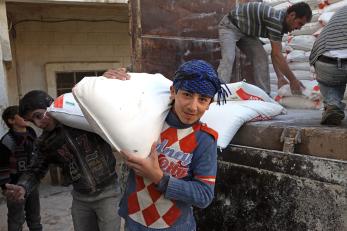
A different kind of education
Before the outbreak of conflict in 2011, Syrian youth were among the most educated in the Middle East region, with Syria having achieved near-universal primary education enrollment at 97 percent, a secondary school completion rate of 74 percent and over 93 percent literacy rates for both females and males.
Conflict changed all that. Today almost one-third of all school-aged children in Syria (aged 5 to 17 years) are out of school, with an additional 1.3 million at risk of dropping out.
Young people often shared with us the Arabic saying that “education is man’s weapon.” Syrians value education highly, but as a result of the war, a focus on family has eclipsed that.
“War changed a lot for us, we used to be able to study, now our responsibilities grew and we have to work to help our parents,” says one girl.
The need to step into new family roles meant neglecting their educational needs and now, years later, most feel it’s too late to catch up. Instead, needing to gain professional skills is their priority.
An overwhelming sense of loss is palpable in their responses. “My emotions have changed towards sadness because of all the displacement of my friends and relatives,” says one boy. “I am thinking of things larger than my age. I have my feeling my future is gone because of this war.”
Redefining purpose to strengthen resilience
Yet many of these young people still see their future being in Syria.
“My identity is Syria,” says one boy. “I should live in my country and bear everything that is happening until this bad situation ends. Syria is my homeland.”
Most of the young people we spoke with are proud to be Syrian, despite the war, and didn’t have immediate plans to leave.
Others passionately shared that the atrocities they’ve witnessed and experienced have made them feel less Syrian. Specifically, how forced displacement has created the idea that being Syrian means being a refugee, neither welcome in other countries or able to live decently in their own homeland.
“Sometimes I wish that I was not Syrian and have not seen what has happened in Syria,” says one boy.
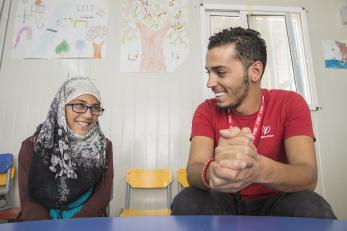
For some young women, many already married with children, working has increased their agency and equality within their relationships. “I love being old and helping my husband with what he wants and with money to spend on our daughters,” says one young woman. “I hope I find a (full-time) job so I can make my daughters happy.”
Young Syrians that have accepted and embraced their new roles have redefined purpose in their lives, strengthening their resilience. This sense of purpose is deeply connected to and inspired by how they feel about family and their homeland. “I wish to have a trade that benefits me, allows me to teach society through it, and also helps my parents,” says one girl.
Mercy Corps sees Syrian youth as their own advocates — as transformative change agents critical to the fabric of Syria who are capable of speaking for themselves.
These interviews were a unique opportunity to capture their voices and experiences. In response, we are committed to working toward meeting their shared needs.
